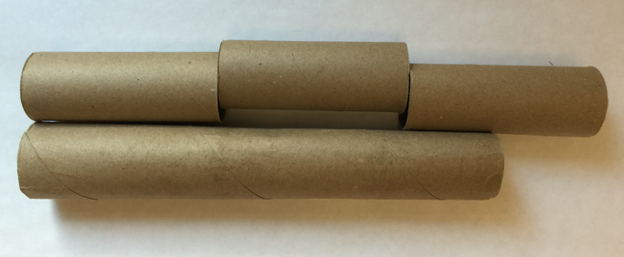Lesson 9
Fractional Lengths
Let’s solve problems about fractional lengths.
9.1: Number Talk: Multiplication Strategies
Find the product mentally.
\(19\boldcdot 14\)
9.2: Info Gap: How Many Would It Take?
Your teacher will give you either a problem card or a data card. Do not show or read your card to your partner.
If your teacher gives you the problem card:
-
Silently read your card and think about what information you need to be able to answer the question.
-
Ask your partner for the specific information that you need.
-
Explain how you are using the information to solve the problem.
Continue to ask questions until you have enough information to solve the problem.
-
Share the problem card and solve the problem independently.
-
Read the data card and discuss your reasoning.
If your teacher gives you the data card:
-
Silently read your card.
-
Ask your partner “What specific information do you need?” and wait for them to ask for information.
If your partner asks for information that is not on the card, do not do the calculations for them. Tell them you don’t have that information.
-
Before sharing the information, ask “Why do you need that information?” Listen to your partner’s reasoning and ask clarifying questions.
-
Read the problem card and solve the problem independently.
-
Share the data card and discuss your reasoning.
Lin has a work of art that is \(14\) inches by \(20\) inches. She wants to frame it with large paper clips laid end to end.
- If each paper clip is \(1\frac34\) inch long, how many paper clips would she need? Show your reasoning and be sure to think about potential gaps and overlaps. Consider making a sketch that shows how the paper clips could be arranged.
- How many paper clips are needed if the paper clips are spaced \(\frac14\) inch apart? Describe the arrangement of the paper clips at the corners of the frame.
9.3: How Many Times as Tall or as Far?
-
A second-grade student is 4 feet tall. Her teacher is \(5\frac23\) feet tall.
- How many times as tall as the student is the teacher?
- What fraction of the teacher’s height is the student’s height?
-
Find each quotient. Show your reasoning and check your answer.
- \(9 \div \frac35\)
- \(1\frac78 \div \frac 34\)
-
Write a division equation that can help answer each of these questions. Then find the answer. If you get stuck, consider drawing a diagram.
- A runner ran \(1\frac45\) miles on Monday and \(6\frac{3}{10}\) miles on Tuesday. How many times her Monday’s distance was her Tuesday’s distance?
- A cyclist planned to ride \(9\frac12\) miles but only managed to travel \(3\frac78\) miles. What fraction of his planned trip did he travel?
9.4: Comparing Paper Rolls
The photo shows a situation that involves fractions.

-
Complete the sentences. Be prepared to explain your reasoning.
-
The length of the long tube is about ______ times the length of a short tube.
-
The length of a short tube is about ______ times the length of the long tube.
-
-
If the length of the long paper roll is \(11 \frac 14\) inches, what is the length of each short paper roll?
Summary
Division can help us solve comparison problems in which we find out how many times as large or as small one number is compared to another. For example, a student is playing two songs for a music recital. The first song is \(1\frac12\) minutes long. The second song is \(3 \frac34\) minutes long.

We can ask two different comparison questions and write different multiplication and division equations to represent each question.
- How many times as long as the first song is the second song?
\(\displaystyle {?} \boldcdot 1\frac12 = 3\frac 34\)
\(\displaystyle 3 \frac 34 \div 1\frac 12 = {?}\)
- What fraction of the second song is the first song?
\(\displaystyle {?} \boldcdot 3\frac 34 = 1\frac 12\)
\(\displaystyle 1\frac12 \div 3\frac34 = {?}\)
We can use the algorithm we learned to calculate the quotients.
\(\displaystyle \begin {align} &= \frac {15}{4} \div \frac 32\\[10px] &= \frac {15}{4} \boldcdot \frac 23\\[10px] &=\frac {30}{12}\\[10px]&=\frac {5}{2}\\[10px] \end {align}\)
This means the second song is \(2\frac 12\) times as long as the first song.
\(\displaystyle \begin {align} &=\frac 32 \div \frac {15}{4}\\[10px] &=\frac 32 \boldcdot \frac {4}{15}\\[10px] &=\frac {12}{30}\\[10px] &=\frac {2}{5} \end {align}\)
This means the first song is \(\frac 25\) as long as the second song.